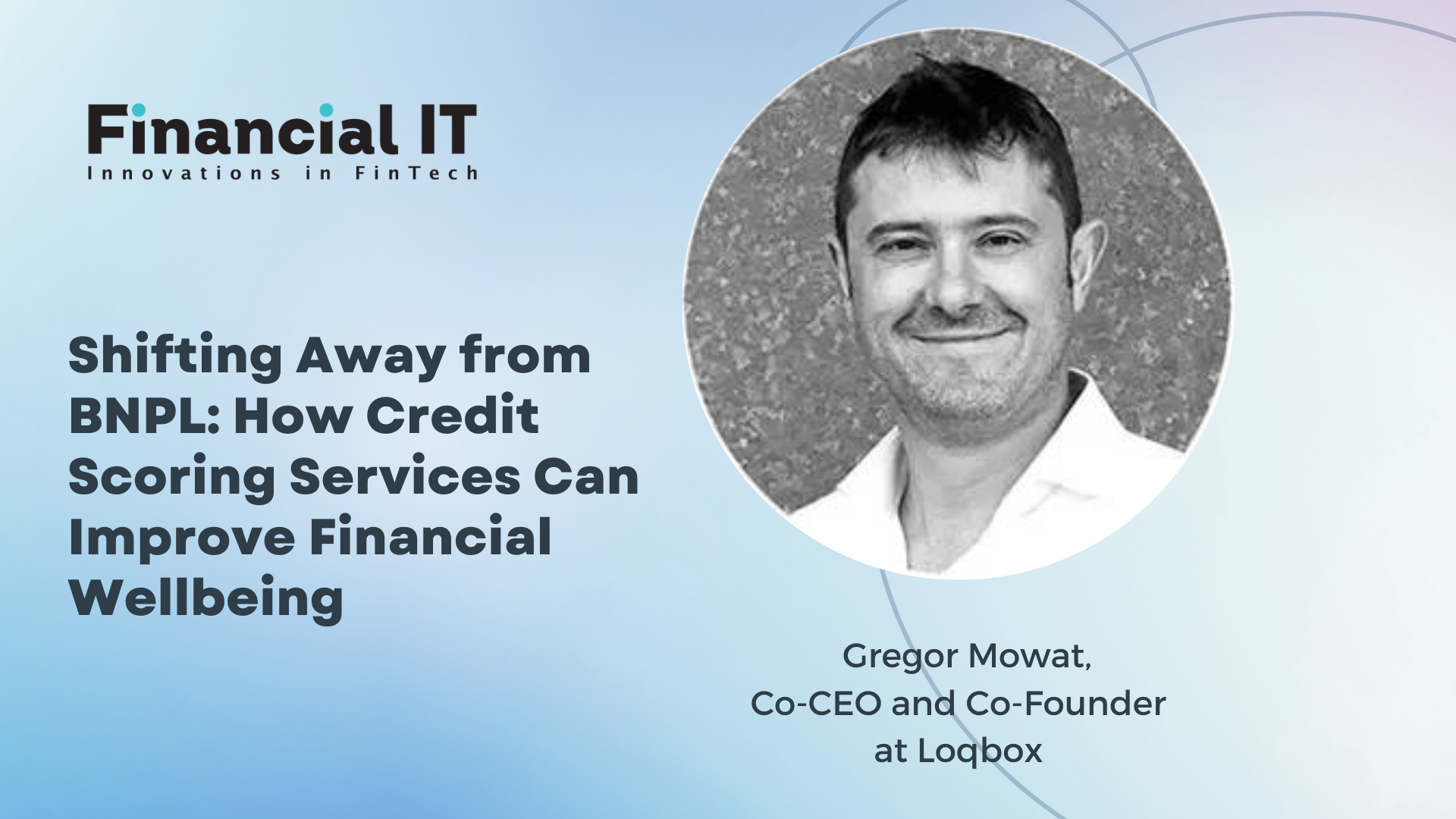Shifting Away from BNPL: How Credit Scoring Services Can Improve Financial Wellbeing

- Gregor Mowat, Co-CEO and Co-Founder at Loqbox
- 21.12.2023 07:45 am #fintech #bnpl #creditscoring
I don’t need to spend too long detailing how the ongoing cost-of-living crisis has impacted finances across the UK. But here are a couple of stats borrowed from the Financial Conduct Authority:
More than half of UK adults ceased saving or investing by January 2023
One in four adults is facing financial challenges or at the brink of difficulty
The financial landscape has become undeniably fraught with economic turbulence and the rising cost of finance products. Just look at the higher interest rates and higher fees driven by mainstream banks and lenders tightening up borrowing criteria.
The picture can feel quite harrowing for people across the UK. So, we want to change things up. We want to bring financial well-being to the top of the agenda and inspire people with the knowledge, confidence, and tools to improve their financial situations, feel better about money, and reach their financial goals.
Can I just pay later?
The rising cost of finance products has led many consumers to explore alternative payment methods such as Buy Now Pay Later (BNPL) to manage their expenses and extend their ability to purchase the things they want.
Services like BNPL have their benefits – say, for consumers who are excluded from traditional credit or lending products due to low or non-existent credit scores. For example, people who have recently moved to the UK (and couldn’t bring their personal credit histories with them), or even those with previously healthy credit scores whose financial circumstances have changed due to life events such as redundancies, illnesses, or divorce. Others may simply opt for BNPL as their chosen method of budgeting.
While BNPL provides accessibility for those excluded from traditional finance, and support for others when managing finances, we all know how easily people can slip into debt. Not meeting repayment terms, making too many impulse or non-essential purchases, or relying on too many BNPL services and accumulating debt quickly are just a few reasons why BNPL can end up harming consumers.
So, what can we do to stop people turning to BNPL services – or other, more expensive lenders? How do we help them reach their financial goals, purchase in ways that align with their budget, and build their credit scores?
Positively, upcoming regulatory changes in the UK will increase scrutiny on how customers are treated and how POS finance businesses price and offer services. However, I still believe that a broader transformation of the financial system is needed to ensure finance becomes more accessible to the people who need it and to ensure that consumers have the information they need to make sound financial decisions.
Creating a more accessible route to finance
Credit scoring services like Experian and ClearScore offer the ability for people to monitor and take steps to improve their credit scores. In the UK, the proportion of adults who have obtained their credit report or checked their credit score in the previous 12 months stood at 28%, with the largest usage increase coming from adults aged 35-44, those who were employed, those who had a residential mortgage, and those with a household income of £50,000 or more. These figures indicate that there’s a growing range of people from varying backgrounds who are interested in improving their financial well-being.
Credit scoring services put the right information in front of people so that they can sign up for credit safely, more easily fulfill their financial goals, and better understand ways to build their credit scores.
The advent of Open Banking has made it easier for financial providers to incorporate credit-scoring services into their offerings. Through Open Banking APIs, providers can integrate smart personal finance tools that empower customers to improve their financial well-being.
For providers, this means greater visibility of their customer’s financial health, improved data flows, more third-party connections and collaboration opportunities across industries, as well as the ability to offer additional services such as non-sweeping variable recurring payments (VRPs).
From a consumer perspective, more financial provider data shared through Open Banking will mean that consumers can find the right services for them, and at lower cost too.
A shared vision for financial access
Improving financial education starts with creating informed access to financial products, ensuring consumers can get advice at their fingertips. Loqbox is prioritizing financial education and well-being, and we are working with credit scoring services to inspire people with the knowledge, confidence, and tools to reach their financial goals.
On average, Loqbox members grow their scores by 197 points, build a savings pot of £528, and 80% feel more knowledgeable, motivated, or confident about money. Additionally, by increasing our members’ credit scores, we can help them save thousands of pounds during the life of a credit agreement – be it a mortgage, credit card, loan, or car finance as they can access better deals. This is made possible via a range of powerful credit-building, savings, and education tools available to Loqbox members.
Over 1,000,000 people have been positively impacted by Loqbox, with 88% of our members who track their credit scores seeing improvements.
Our mission is to give everyone access to a richer life so they can enjoy a happier, healthier relationship with money. When financial providers collaborate to offer solutions such as credit scoring services, I am confident that, together, we can build a healthier financial world for our society. And for that reason, we’re always eager to explore new ways to collaborate with partners in delivering on our mission.





















